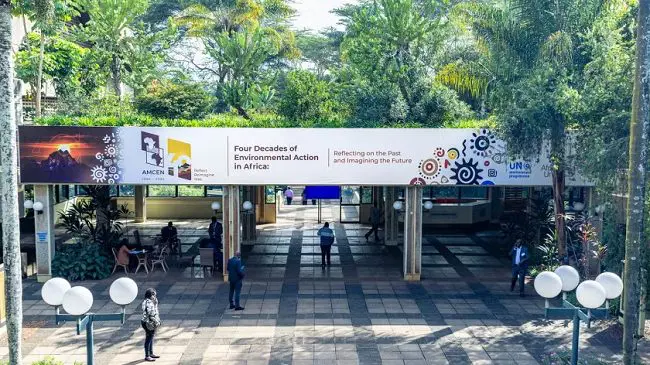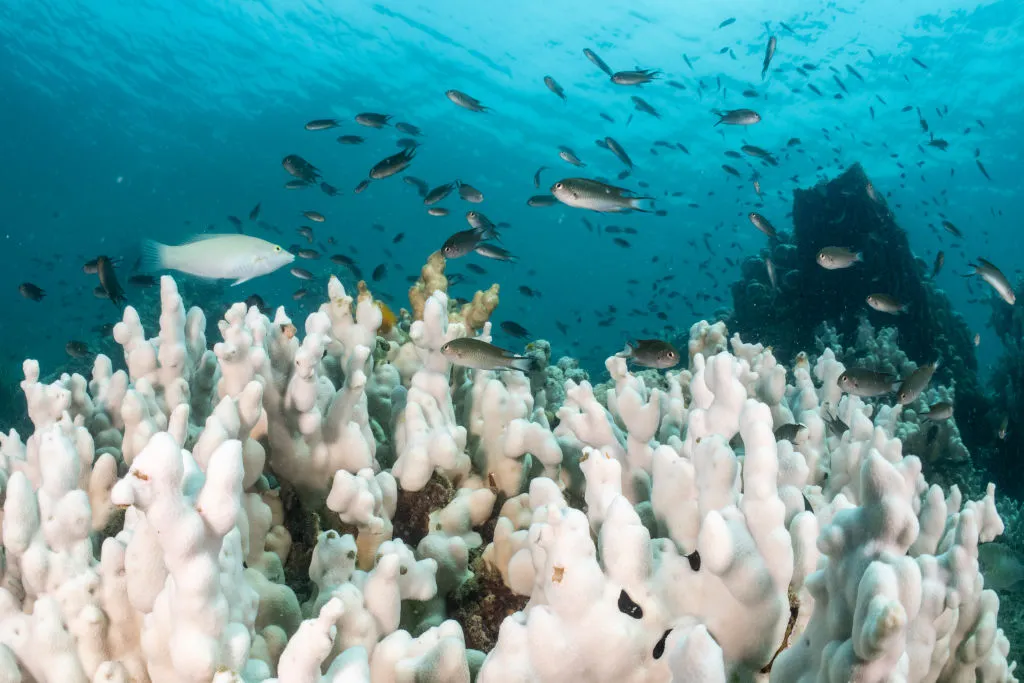Written By: Faith Jemosop
At the close of the 19th African Ministerial Conference on the Environment (AMCEN) held in Addis Ababa, Ethiopia, Greenpeace Africa welcomed the unified position African leaders took on climate change but issued a sharp caution against the growing adoption of false solutions such as carbon offsetting, geoengineering, and unproven carbon markets.
The environmental watchdog said while Africa’s unity on climate issues is commendable and long overdue, it must be rooted in justice, genuine emission reduction strategies, and the rejection of market-driven climate schemes that could harm the continent in the long run.
“Africa must not allow itself to become a dumping ground for failed solutions exported from the Global North,” said Thandile Chinyavanhu, Greenpeace Africa’s Climate and Energy Campaigner. “We need climate justice, not carbon colonialism.”
The 19th session of AMCEN, held from July 15 to 19, 2024, convened ministers and representatives from over 50 African nations under the theme: “Seizing Opportunities and Enhancing Collaboration to Address Environmental Challenges in Africa.”
The forum provided a space for African leaders to harmonize their positions ahead of COP29, tackle mounting climate impacts, and discuss strategies for sustainable development. Key resolutions focused on:
- Building climate-resilient economies
- Investing in renewable energy
- Protecting biodiversity
- Strengthening environmental governance
Significantly, AMCEN ministers reaffirmed a common African position, demanding historical accountability, climate finance, and technology transfer from industrialized countries, while asserting Africa’s right to development.
Greenpeace Africa commended AMCEN for presenting a united African voice that centres climate justice, but raised red flags over the creeping infiltration of false climate solutions, especially in light of lobbying by multinational corporations.
These “solutions,” Greenpeace argues, are neo-colonial mechanisms that fail to reduce emissions at the source and risk turning Africa into a testing ground for experimental technologies or carbon offsetting projects that displace local communities.
Also read: Africa Unites to Tackle Health Threats from Climate Change and Zoonotic Diseases
Greenpeace highlighted several problematic trends:
- Carbon Offsetting: Wealthy nations and companies continue polluting but “offset” their emissions by financing tree planting or conservation in Africa, often displacing communities and failing to capture equivalent carbon.
- Geoengineering: Technologies like solar radiation management or carbon capture and storage (CCS) are risky, untested at scale, and could have unintended consequences for African ecosystems.
- Carbon Markets: Africa is being pushed to participate in voluntary carbon markets, which critics say are largely unregulated, lack transparency, and serve investor profits rather than climate outcomes.
“The Global North must cut emissions at home, not outsource their pollution to Africa through flashy market schemes,” said Chinyavanhu.
Africa stands at a climate crossroads: grappling with worsening droughts, floods, and heatwaves while facing increasing pressure from external actors to host or adopt questionable climate interventions.
Greenpeace Africa emphasized the importance of homegrown, science-based, and people-centered solutions, such as:
- Scaling up community-owned renewable energy
- Implementing agroecology instead of industrial agriculture
- Empowering indigenous knowledge systems
- Strengthening climate adaptation funding for frontline communities
These real solutions not only address the root causes of emissions but also offer social and economic co-benefits to African citizens.
A Climate Justice Approach, Not Carbon Colonialism
The NGO’s statement aligns with broader calls for climate reparations and equitable climate finance. Africa contributes less than 4% of global emissions but bears a disproportionate share of climate impacts.
Greenpeace insists that Africa’s environmental strategy must be guided by climate justice principles, including:
- Polluter Pays: Industrialized nations must finance Africa’s adaptation, not just loans or pledges, but direct, grant-based support.
- Loss and Damage Compensation: Funds to address irreversible climate losses, not tied to offsets or conditionality’s.
- Technology Sovereignty: Africa must not be a passive recipient of tech but an equal partner in developing climate innovations.
Warning Against Greenwashing and Corporate Capture
A critical concern raised by Greenpeace is the corporate capture of African climate spaces, where fossil fuel companies, agribusiness giants, and financial institutions push for profit-driven “green” projects under the guise of sustainability.
Many of these projects, such as nature-based solutions or blue carbon initiatives, while sounding beneficial, are often:
- Poorly regulated
- Implemented without community consent
- Driven by speculative carbon markets
“We cannot allow our forests, waters, and soils to become tradable assets on Wall Street,” warned Greenpeace.
Greenpeace urged African leaders to resist pressure from polluters, reject green colonialism, and champion grassroots solutions. AMCEN’s resolutions must translate into action that is transparent, inclusive, and grounded in African realities.
The group also called for:
- Robust monitoring mechanisms to prevent greenwashing
- Legal frameworks protecting communities from exploitative climate schemes
- Youth and civil society involvement in decision-making processes
Also read: How Africa’s Youth Are Leading the Fight Against Climate Change
AMCEN’s unified stance sets the stage for a stronger African bloc at COP29. With global climate politics shifting and trust eroding between the Global North and South, Africa’s voice, if principled and coordinated, can shape future negotiations.
Greenpeace Africa urged the continent’s leaders to hold firm:
“Africa has power. Not just in its forests or minerals, but in its people, its principles, and its ability to say ‘no’ to false solutions. Let us not trade that power for empty promises.”






